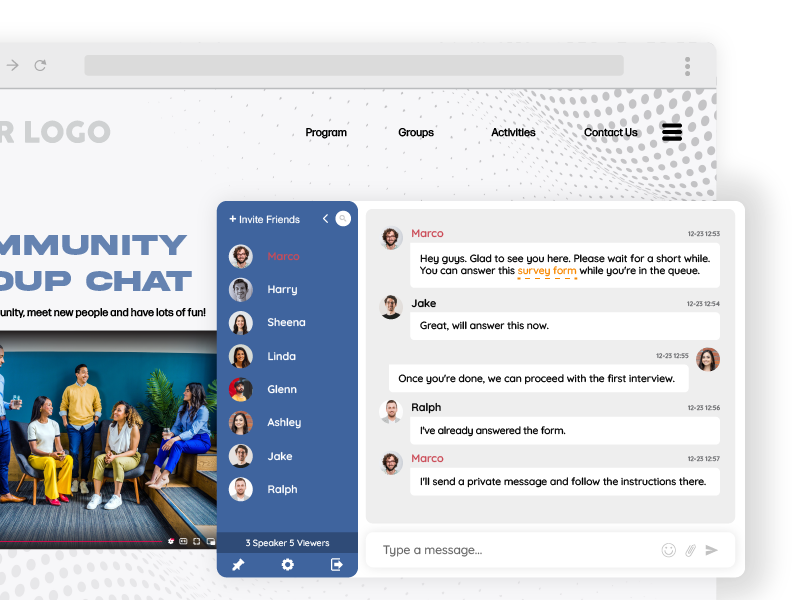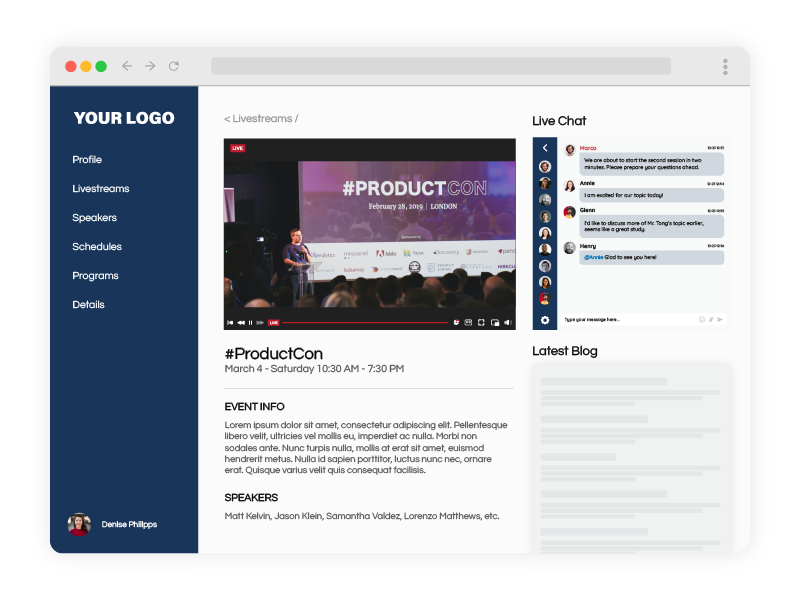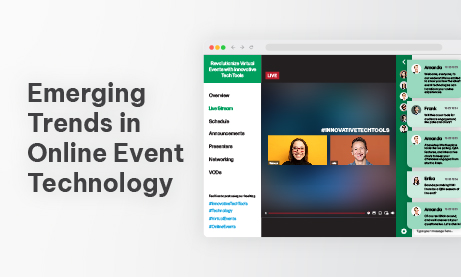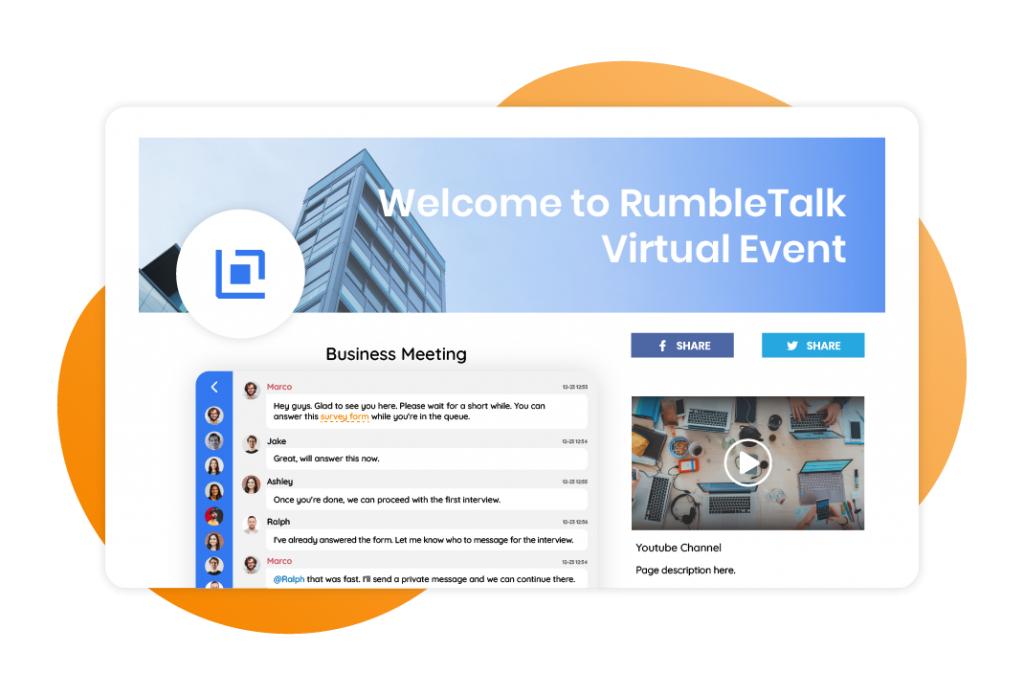As the world continues to embrace digital transformation, online event technology has become a pivotal component in shaping how people connect, collaborate, and share experiences. This burgeoning field, which encompasses everything from virtual event platforms to sophisticated communication tools, is witnessing rapid advancements that are revolutionizing the way events are planned and executed.
The Evolution of Online Event Technology
Over the past decade, the shift from physical to virtual and hybrid events has highlighted the need for robust online event technology. Traditional conferences and gatherings have transitioned to virtual platforms, breaking geographical barriers and making events more accessible. This evolution has been accelerated by the COVID-19 pandemic, which necessitated remote interactions and underscored the importance of having reliable, feature-rich platforms to host online events.
Key Features Driving Online Event Platforms
Modern online event platforms are equipped with features designed to enhance user engagement and provide a seamless experience. These features include:

– Interactive Chat Rooms: The backbone of many virtual events, chat rooms enable real-time interaction among attendees. Advanced chat solutions now include multimedia sharing, private messaging, and threaded conversations to simulate in-person networking.
– Video and Live Streaming: High-quality video capabilities are crucial for delivering keynotes, panel discussions, and product launches. Platforms now support multi-camera setups, screen sharing, and integration with third-party streaming services for a polished experience.
– AI-Powered Networking: AI algorithms facilitate intelligent matchmaking, connecting attendees with similar interests or professional goals, thus enhancing the value of networking sessions.
– Gamification Elements: To maintain engagement, platforms integrate gamified experiences such as quizzes, leaderboards, and virtual scavenger hunts.
– Custom Branding: Customization options ensure that the event aligns with the host’s brand identity, from logos to themed backgrounds and virtual booths.
The Role of Chat Technology in Online Events
Chat technology remains a cornerstone of online event technology, providing avenues for audience engagement and collaboration. According to the Complete Guide for Chat Rooms, modern chat solutions are no longer limited to text. They now support multimedia capabilities, moderation tools, and advanced security features to protect user data.
RumbleTalk’s Innovative Chat Room Features
RumbleTalk has established itself as a leader in chat technology, offering a suite of unique features tailored to enhance online event experiences:
1. Multimedia Chat: Share files, images, videos, and even YouTube links directly within the chat. This feature makes discussions more engaging and versatile.
2. Moderation and Control Tools: Event organizers can manage conversations effectively with tools like profanity filters, keyword alerts, and the ability to ban or mute users.
3. Customizable Chat Design: Tailor the chat’s appearance to match your brand with adjustable colors, fonts, and themes.
4. Monetized Chat Options: RumbleTalk enables event hosts to charge for private one-on-one chats or exclusive group sessions, opening new revenue streams.
5. Polls and Q&A Sessions: Engage audiences directly with live polls and structured Q&A sections within the chat interface.
6. End-to-End Encryption: Ensure all chat communications are secure with robust encryption protocols.
7. Embedded Chat Widgets: Integrate the chat seamlessly into websites, event pages, or apps for a unified experience.
8. Social Media Integration: Attendees can log in using popular social platforms, streamlining the user experience.
Virtual Reality (VR) and Augmented Reality (AR) in Events
The integration of VR and AR into online event technology is transforming how audiences interact with content. These technologies create immersive experiences, such as virtual trade shows, 3D product demonstrations, and interactive workshops.
Where You Can Use VR and AR
Here are some use cases for VR and AR in events:

– Virtual Venues: Attendees can navigate through virtual spaces designed to mimic real-world venues, offering an immersive alternative to traditional events.
– Interactive Presentations: AR enhances presentations by overlaying digital content onto the real world, providing attendees with hands-on experiences.
– Gamified Experiences: VR enables fully immersive games and challenges that boost engagement and entertainment.
The Rise of Hybrid Events
Hybrid events, which combine in-person and online experiences, are a significant trend in online event technology. They offer the best of both worlds, catering to attendees who prefer face-to-face interactions and those who choose virtual participation.
Key Considerations for Hybrid Events
Before you go into the realm of hybrid events, make sure you have tools for the following:
– Seamless Integration: Ensuring that online and offline components are synchronized is essential for a unified experience.
– Audience Engagement: Engaging both virtual and physical audiences through interactive features such as Q&A sessions, live polls, and networking lounges.
– Advanced Analytics: Real-time data collection and analytics provide insights into attendee behavior, helping organizers refine their strategies.
Emerging Trends in Online Event Technology
Since online events are booming, here are some of the trends that are popular:
1. Artificial Intelligence (AI): From automating event management tasks to personalizing attendee experiences, AI is playing an integral role in shaping the future of online events.
2. Blockchain Technology: Blockchain ensures secure transactions and transparent ticketing systems, reducing fraud and enhancing trust.
3. Sustainability: Virtual events reduce the carbon footprint associated with traditional events, aligning with global sustainability goals.
4. 5G Connectivity: Faster and more reliable internet connections facilitate high-quality streaming and real-time interactions.
5. Accessibility Features: Platforms are prioritizing inclusivity by incorporating closed captions, sign language interpreters, and multi-language support.
Monetization Strategies for Online Events
Online event organizers are exploring innovative monetization strategies to maximize ROI. These include the following:
– Tiered Ticketing: Offering different levels of access based on ticket pricing, such as VIP experiences or exclusive content.
– Sponsored Content: Collaborating with brands to feature sponsored sessions, ads, or virtual booths.
– Pay-Per-View Models: Charging attendees for specific sessions or premium content.
– Merchandise Sales: Selling branded merchandise or digital assets related to the event.
Challenges and Opportunities
While the advancements in online event technology are promising, they come with challenges such as:
– Technical Glitches: Ensuring platform stability and addressing connectivity issues.
– Engagement Fatigue: Combatting screen fatigue by offering engaging and diverse content.
– Data Privacy Concerns: Complying with data protection regulations and ensuring secure data handling.
However, these challenges also present opportunities for innovation, as developers strive to create more resilient, user-friendly platforms.
How online event technology is reshaping events
Online event technology is at the forefront of reshaping how events are conducted in the digital age. From advanced chat solutions and immersive VR experiences to AI-powered networking and hybrid event models, the industry is brimming with potential.
RumbleTalk’s innovative features stand out as a testament to the growing sophistication in this domain. By staying abreast of emerging trends and leveraging cutting-edge tools, event organizers can create impactful experiences that resonate with global audiences. The future of online events is bright, and embracing these innovations will pave the way for unprecedented growth and connectivity.


